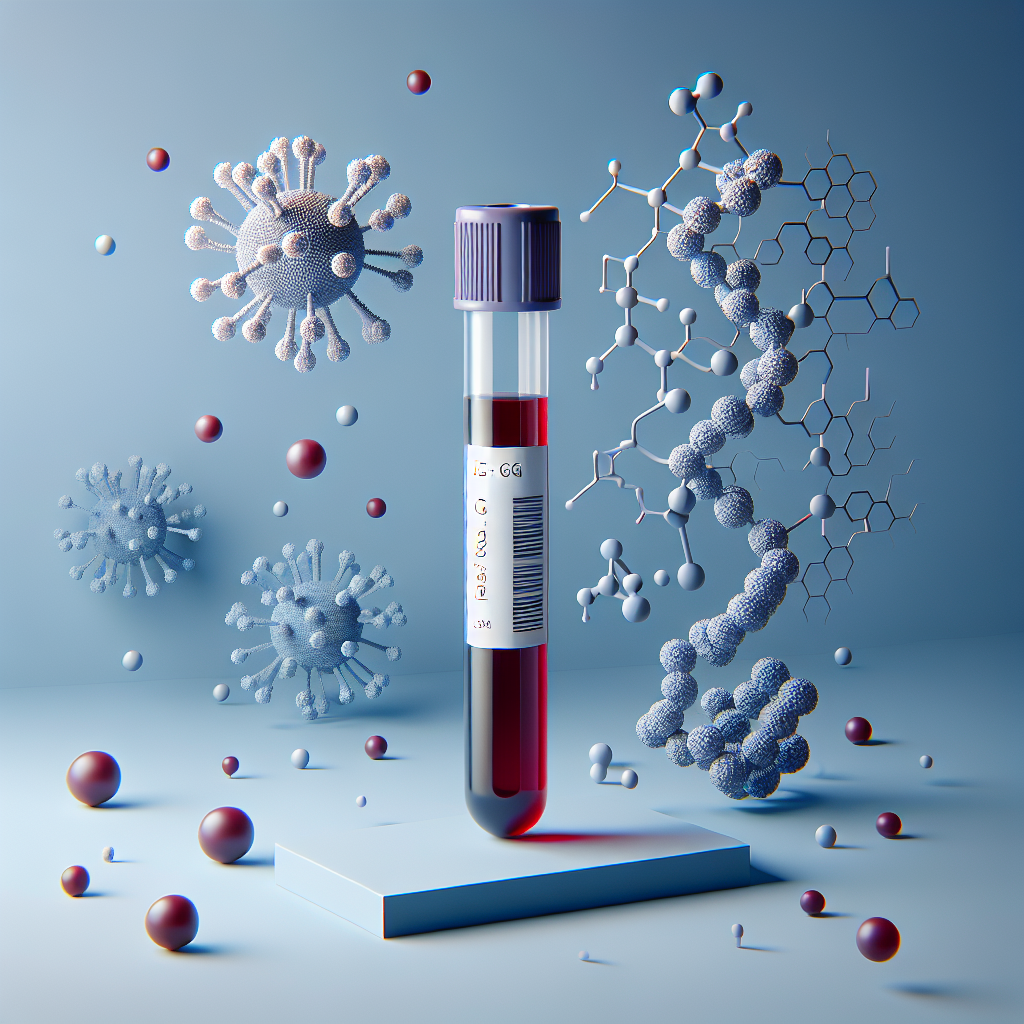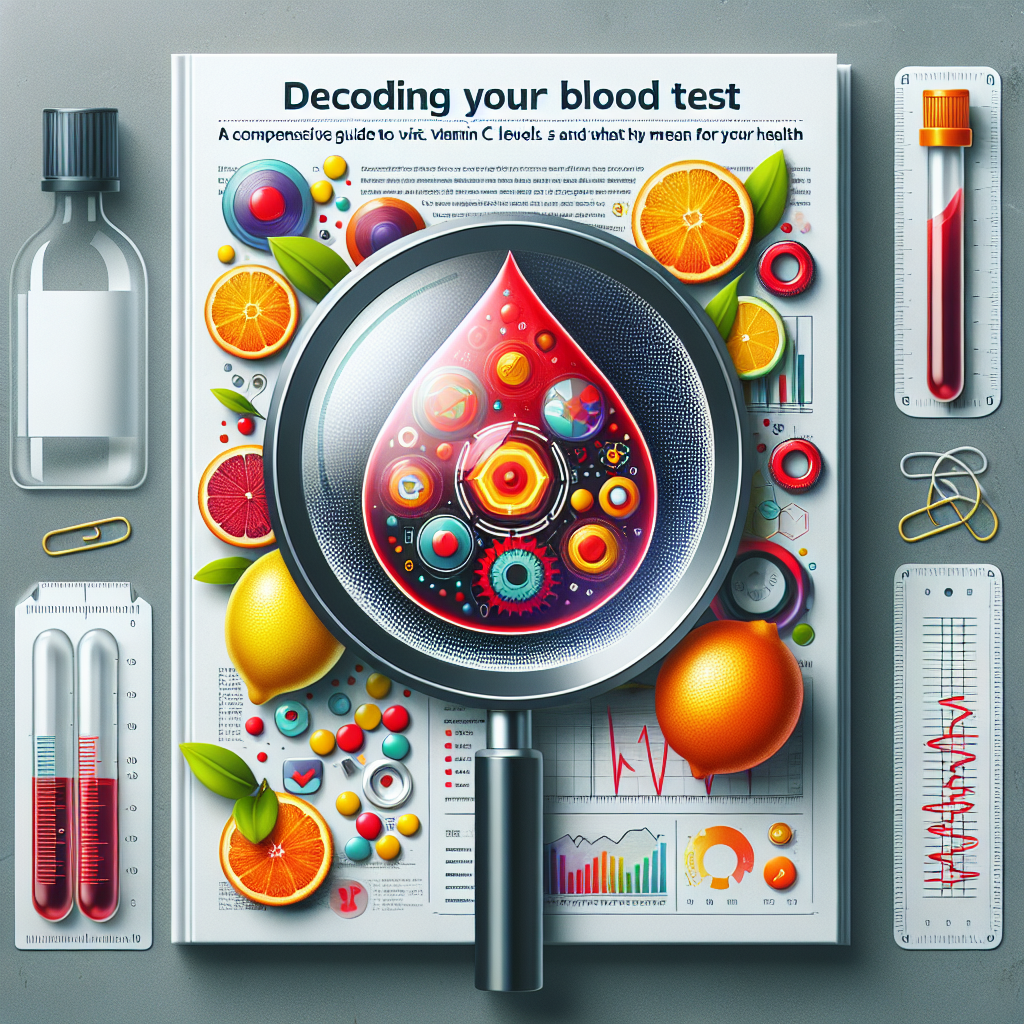When you receive your blood test results, it’s common to have questions about what they mean. The mention of “IgG” or “Immunoglobulin G” often stands out. Naturally, you may want to know the implications of this value for your health. This article is designed to help you understand this vital biological marker, including its function, how to interpret your results, and the insights it can provide about your body’s immune response.
What is IgG (Immunoglobulin G)?
Immunoglobulin G, commonly referred to as IgG, is the most prevalent class of antibodies found in our bloodstream. These antibodies are specialized proteins produced by the immune system. Plasma cells, which originate from B lymphocytes, are responsible for generating these proteins primarily in the bone marrow and lymphoid organs, including the spleen and lymph nodes.
To grasp this concept better, you can think of the immune system as a security service. In this analogy, IgGs act as the most numerous and adaptable agents in the field. Upon detecting a potential threat, the body manufactures specific IgGs to recognize and neutralize it. The human body is capable of producing millions of different types of IgG, each tailored to target a specific invader.
IgG plays a crucial role in immune defense through several mechanisms. Firstly, it can neutralize pathogens, such as viruses, by binding to them and preventing their action. Secondly, this binding serves as a signaling mechanism, alerting other immune cells to locate and eliminate the intruder more efficiently. Lastly, IgG can activate a group of proteins known as the “complement system,” which aids in destroying invaders by puncturing their membranes.
The Role of This Marker in Your Health
Assessing IgG levels in the blood provides valuable insight into an important aspect of immunity known as humoral immunity. This test enables healthcare providers to investigate various scenarios ranging from immune deficiencies to chronic inflammatory responses. Additionally, it allows for monitoring the body’s response to certain infections or vaccinations.
Understanding your IgG level can offer insight into the functioning of your immune system. It doesn’t operate in isolation; it interacts with a complex web involving other immune cells, signaling molecules (cytokines), and even the gut microbiota, all of which work in concert to maintain a balanced defense system.
Identifying abnormal IgG levels is important, as they can have significant health implications. For instance, a low IgG level (hypogammaglobulinemia) can increase susceptibility to infections, resulting in more frequent or severe occurrences. Conversely, a high level (hypergammaglobulinemia) can be indicative of chronic inflammation, ongoing infections, or certain autoimmune disorders.
In clinical settings, monitoring IgG is a powerful diagnostic tool. For individuals experiencing recurrent infections, this test represents a critical step in diagnosis and guides the choice of appropriate treatments, such as replacement therapy in cases of deficiency. Likewise, for those with autoimmune diseases, monitoring IgG levels can inform therapy adjustments.
How to Interpret Your Test Results
You will typically find your blood test report organized in a tabular format.
| Parameter | Result | Reference Values | Unit |
|---|---|---|---|
| Total IgG | 15.2 | 7.0 – 16.0 | g/L |
| IgG1 | 9.6 | 4.9 – 11.4 | g/L |
| IgG2 | 4.8 | 1.5 – 6.4 | g/L |
| IgG3 | 0.21 | 0.20 – 1.10 | g/L |
| IgG4 | 0.59 | 0.08 – 1.40 | g/L |
The “Result” column presents your personal values, while the “Reference Values” column indicates the normal range for most individuals. The standard unit of measurement is grams per liter (g/L). Laboratories often highlight any out-of-range values with colors, arrows (↑ or ↓), or asterisks for easy identification.
These reference values are established by each laboratory and are derived from a large sample of healthy individuals. The chosen range typically encompasses 95% of this population, which explains minor variations among different laboratories.
To interpret your report, compare your result against the reference ranges. A minor deviation is often less concerning than a value that strays significantly from the norm. Remember to note the date of the sample, as levels can fluctuate over time. If you have previous test results, a comparison can be particularly enlightening.
What Conditions Can Be Associated with an Abnormality?
Fluctuations in IgG levels can signify various medical conditions, which are generally categorized based on whether the levels are too low or too high.
An Abnormally Low IgG Level (Hypogammaglobulinemia)
A deficiency in IgG can be classified as primary (of genetic origin) or secondary (acquired due to an illness or treatment).
Common Variable Immune Deficiency (CVID)
CVID is one of the most frequently encountered primary immunodeficiencies among adults. It is characterized by inadequate antibody production, primarily due to defects in the maturation of B lymphocytes into plasma cells. Common symptoms include recurrent infections, particularly respiratory issues (such as sinusitis, bronchitis, or pneumonia) and gastrointestinal ailments.
Selective IgG Subclass Deficiency
In this scenario, total IgG levels may appear normal, but deficiencies in one or more of the four subclasses (IgG1, IgG2, IgG3, IgG4) can occur. This condition also predisposes individuals to recurrent infections, particularly those caused by encapsulated bacteria.
Secondary Causes
Certain medications can lead to lower IgG levels, including some immunosuppressants, chemotherapy agents, or high doses of corticosteroids. Additionally, diseases like nephrotic syndrome (which causes protein loss through the kidneys) can also contribute to this drop in levels.
An Abnormally High IgG Level (Hypergammaglobulinemia)
An increase in IgG levels may be categorized as polyclonal (multiple types of antibodies increase) or monoclonal (excess production of a single type of antibody).
Autoimmune Diseases
Many autoimmune conditions, such as lupus and rheumatoid arthritis, drive the immune system to produce an overabundance of antibodies. In these instances, autoantibodies target the body’s own tissues, resulting in chronic inflammation.
Chronic Infections
Persistent infections, such as hepatitis C, HIV, or tuberculosis, continuously challenge the immune system, leading to sustained elevations in IgG levels due to prolonged immune stimulation.
Monoclonal Gammopathies
These conditions arise from the proliferation of a single clone of plasma cells that generate excessive amounts of a specific immunoglobulin. Multiple myeloma is the most recognized type of malignant monoclonal gammopathy.
Practical Tips and Recommendations
What Follow-Up Schedule to Adopt?
Your follow-up schedule should depend on your IgG levels and overall health.
- Slightly out-of-range level without symptoms: A check-up after a few months may be adequate to assess the trend.
- Moderately or severely abnormal level: More frequent follow-ups (every 3 to 6 months) are often necessary, and a consultation with a specialist (immunologist, hematologist, internist) is advisable.
- Abnormality associated with symptoms: Close monitoring is crucial to adjust treatments and track progression.
The Role of Nutrition
A well-balanced diet is vital for maintaining immune health.
- To support immune function: Focus on high-quality protein sources (such as fish, poultry, and legumes), foods rich in zinc (like seeds and meats), and a variety of vitamins (from colorful fruits and vegetables). Probiotics (found in yogurt and kefir) can also enhance intestinal immune health.
- To reduce inflammation: Minimize intake of ultra-processed foods and refined sugars. Favor anti-inflammatory options, including fatty fish (rich in omega-3), olive oil, turmeric, and ginger.
Lifestyle Modifications
- Physical activity: Regular moderate exercise enhances immunity, while overtraining can be detrimental.
- Stress management: Chronic stress adversely affects the immune system; practices such as meditation or deep breathing can be beneficial.
- Sleep: Quality sleep (7-8 hours per night) is essential for the rejuvenation of immune defenses.
- Environmental exposure: Avoid tobacco and limit alcohol consumption, as both can impair antibody production and activity.
When to Consult a Specialist?
It is recommended that you consult a doctor promptly if:
- Your IgG levels are significantly abnormal.
- You experience severe, unusual, or recurrent infections.
- You have generalized symptoms such as intense fatigue, unexpected weight loss, or bone pain.
- Your IgG levels show rapid changes between tests.
If the abnormality is minor, stable, and not accompanied by symptoms, monitoring with your primary care physician may be adequate.
Frequently Asked Questions About Immunoglobulin G
Is an Increase in Level After a Vaccine Normal?
Indeed, this is a completely expected outcome. Vaccination is designed to stimulate the immune system, prompting it to produce specific antibodies, including IgGs. An increase in IgG levels is an indication of an effective immune response. These levels typically peak a few weeks post-vaccination before stabilizing at a protective baseline.
Are There Natural Variations in IgG Levels?
IgG levels are generally stable throughout the day, although slight seasonal variations have been noted, with levels sometimes being marginally higher in winter. These fluctuations are minimal and usually do not affect clinical interpretations.
Can Certain Medications Interfere with the Test?
Yes, certain medications can significantly impact IgG levels. For instance, medications like rituximab, used for certain autoimmune diseases and cancers, can substantially lower IgG levels. Other immunosuppressants and chemotherapy drugs can have similar effects. Always inform the laboratory and your healthcare provider of all medications you are taking.
Why Test IgG Subclasses if the Total is Normal
An individual can present with a total IgG level in the normal range but still have a deficiency in one or more subclasses. This condition can account for recurrent infections when initial screenings appear unremarkable. Analyzing the subclasses thus allows for a more precise diagnosis and offers deeper insight into a patient’s specific immune status.
Can dietary supplements raise a low IgG level?
There is a lack of robust evidence to suggest that “immune-boosting” supplements directly increase IgG concentrations. However, rectifying a diagnosed deficiency in key nutrients like zinc or vitamin D is vital for the proper function of the immune system as a whole. Any plan for supplementation must be supervised by a medical professional.
Is there a connection between a person’s blood type and their IgG levels?
Studies have noted very minor statistical variations between blood types, but these are not considered medically meaningful. The reference ranges that laboratories use are universal and do not change based on a patient’s blood type.
Conclusion
Your IgG concentration offers a key insight into the state of your immune defenses. This crucial antibody is fundamental to guarding against pathogens and preserving your body’s equilibrium. A result that falls outside the standard range does not automatically indicate a severe condition, but it does require a conversation with your physician. Only a qualified doctor can analyze this information within the broader context of your personal health and medical background.
The field of immunology is in a state of continuous advancement. Ongoing scientific investigation perpetually sharpens our knowledge of IgG’s functions and paves the way for novel, targeted treatment strategies. These developments hold significant promise for managing a wide array of medical conditions in the future.
Additional Resources
For more information and to decode other markers, more articles are available here.
Confused by Your Blood Test Results?
Gain instant clarity with BloodSense. Our platform interprets your blood test results online in minutes, transforming complex medical information into an easy-to-understand report. Take charge of your health today by visiting bloodsense.ai to receive your personalized insights now.







